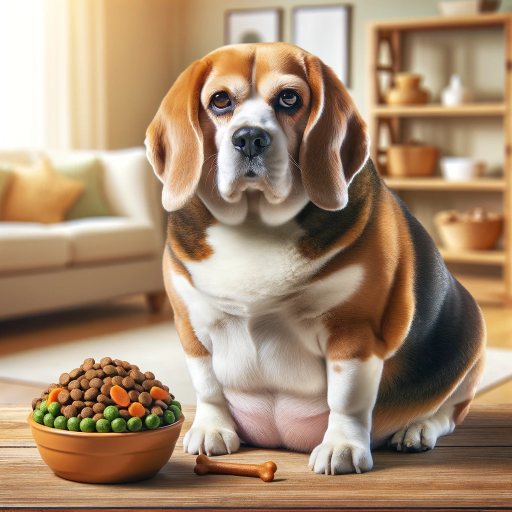Feeding Your 50 lb Dog: Best Foods and Supplements for Optimal Health
When it comes to feeding a dog that weighs around 50 pounds, the dietary needs can vary significantly depending on the breed, age, activity level, and any health concerns. Here, we will explore what a balanced diet looks like for some common dog breeds around this weight, discuss cases of dietary intolerances, and consider when supplements might be necessary.
Nutritional Needs of 50 lb Dogs
Medium-sized dogs weighing around 50 pounds generally require a balanced diet that includes proteins, fats, carbohydrates, vitamins, and minerals. The exact amount of food and the calorie intake can vary, but typically, a dog of this size needs about 1000-1400 calories per day. This can vary based on the dog’s activity level and metabolic rate.
Breeds and Their Dietary Preferences
- Labrador Retrievers: Known for their love of food, Labradors need a well-regulated diet to prevent obesity. High-quality, lean protein from chicken, turkey, or fish can help maintain their muscle mass while keeping fat levels in check.
- English Springer Spaniels: This active breed requires diets rich in protein to support their energy levels. Carbohydrates from whole grains like brown rice and barley can also provide sustained energy.
- Border Collies: Highly energetic, Border Collies benefit from a protein-rich diet and healthy fats like those from flaxseeds or fish oil, which provide omega-3 fatty acids to support their joint health and coat.
Case Studies: Diet Variations for Health
- A 50 lb Golden Retriever with Joint Issues: This dog might benefit from a diet supplemented with glucosamine and chondroitin, which are known to support joint health.
- An Overweight Beagle: Here, a diet lower in fat and calories but high in fiber can help manage weight without leaving the dog hungry.

Recommended Dog Foods for Medium-Sized Breeds: Top Picks for Your 50 lb Companion
- Victor Classic Hi-Pro Plus Formula Dry Dog Food: This product is a high-protein dog food made in the USA, containing a mix of beef, chicken, and pork meals. It’s suitable for dogs with high physical demands and provides sustained energy, making it a good choice for active breeds. It’s available in a 50-lb bag and is known for supporting digestive health, hip, and joint health. You can find it here on Chewy.
- Purina ONE Chicken and Rice Formula Dry Dog Food: This dog food is favored for its taste and nutritional balance. It includes chicken as a primary ingredient and is formulated to provide complete and balanced nutrition. It’s also known to improve coat shine and energy levels. This option is suitable for various breed sizes and can be found in a 50-lb bag here.
- Purina Pro Plan Sport Performance 30/20 Formula: This is another excellent choice, particularly for dogs with high energy levels. It contains 30% protein and 20% fat to help fuel metabolic needs and maintain lean muscle. It includes real chicken as the first ingredient and is available in a 50-lb bag. You can find more information and purchase it here on Chewy.
Addressing Food Intolerances
Food intolerances in dogs can manifest as skin irritations, gastrointestinal upset, or chronic ear infections. Common culprits include beef, dairy, wheat, and chicken. For instance, a Boxer with a sensitive stomach might thrive on a grain-free diet with novel proteins like lamb or venison instead of more common options.
Supplements for Specific Needs
While most dogs receiving a balanced diet do not require additional supplements, some situations warrant extra support:
- Omega-3 Fatty Acids: Beneficial for improving coat quality and reducing inflammation. Dogs with chronic skin conditions or joint issues may need an omega-3 supplement.
- Probiotics: For dogs with digestive issues, probiotics can help maintain intestinal health.
- Antioxidants: Vitamins E and C can be given as supplements to support the immune system, particularly in aging dogs.
Best Practices for Feeding a 50 lb Dog
- Regular Meal Times: Feeding your dog at the same times every day helps regulate their metabolism and digestion.
- Proper Portion Sizes: Avoid free-feeding; measure out meals to manage caloric intake, especially for breeds prone to obesity.
- Consult with a Vet: Regular check-ups can help tailor the diet to the dog’s changing health needs.
Conclusion
Feeding a 50 lb dog involves more than just filling a bowl with commercial dog food. Understanding the breed-specific needs, addressing potential intolerances, and considering the addition of supplements are all critical steps to ensure your pet’s diet supports their health and vitality. Always consult with a veterinarian to tailor a diet plan that’s appropriate for your dog’s specific needs and lifestyle, ensuring they get the right balance of nutrients to lead a healthy and active life.
